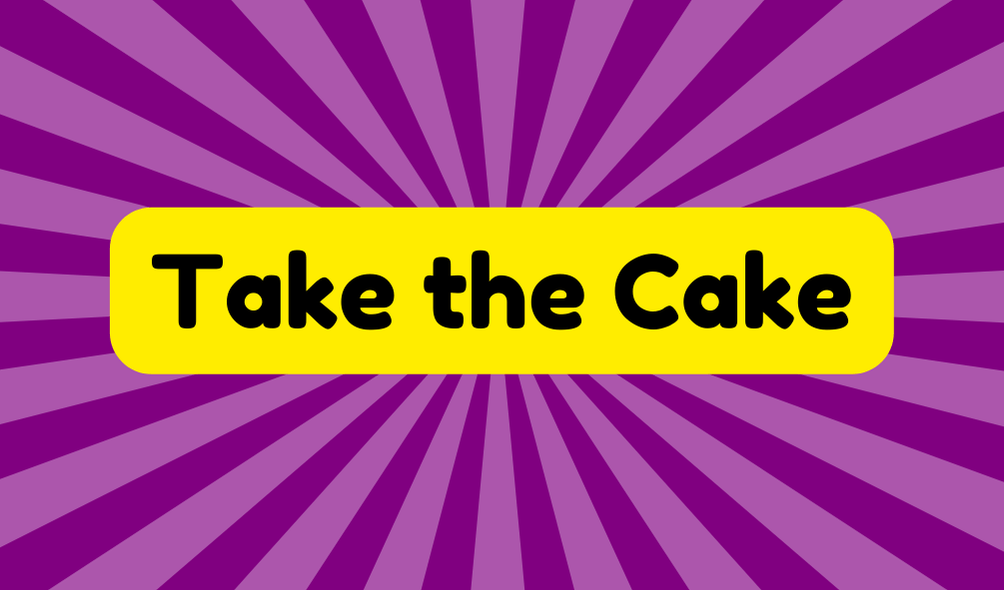"Take the cake" means to highlight the most absurd or incredible situation among others. Its origin links back to Ancient Greece and later became popular in 1800s America, especially during cakewalks. The phrase conveys disbelief and often humor in everyday experiences, like forgetting your friend's birthday—an act that truly "takes the cake." You might say, "That excuse about your pet goldfish takes the cake!" This expression remains relevant, reflecting our daily struggles and unexpected challenges. If you're curious about more examples and usage tips, there's plenty more to uncover about this colorful phrase.
Synonyms
When someone says something "takes the cake," they're often expressing disbelief or highlighting an extreme example of absurdity. This phrase has some intriguing synonyms that offer winning phrases for different contexts. These cake expressions not only convey disbelief but also add flair to your language. Here are a few alternatives to examine:
- Takes the biscuit – Another way to express disbelief or frustration.
- Beats all – Indicates that something is unparalleled in its absurdity.
- Takes the crown – Suggests superiority in ridiculousness.
- Wins the prize – Emphasizes an absurd achievement.
These alternatives not only reflect cultural nuances but also elevate your conversations, allowing you to engage more deeply with different audiences.
Example of Sentences
You might find it helpful to see how the phrase "takes the cake" can be applied in everyday situations. Using idiomatic expressions adds flair to your language, but sometimes they highlight truly absurd situations. Here are a few examples:
- "When he forgot my birthday, that takes the cake for poor friendship."
- "Spilling coffee all over a presentation really takes the cake for bad luck."
- "Her excuse for missing work—'my pet goldfish got too loud'—takes the cake for creativity."
- "The way that movie twisted reality takes the cake for absurd storytelling."
These examples illustrate how the phrase captures moments that push boundaries of reason, showcasing the humor or disbelief we often encounter in our lives.
Origin
The origin of the phrase "takes the cake" has fascinating roots that trace back to Ancient Greece, where people would receive cakes as rewards during festivities. This cake symbolism evolved over time, especially in the 1800s when it became associated with competitive spirit in the United States. The phrase gained popularity through events like cakewalks, which were lively dance competitions that humorously mocked plantation owners. O. Henry might have further popularized it in 1908. As linguistic evolution unfolded, this phrase transformed from a celebratory reward to signify the extremes of absurdity or disappointment in various situations. Understanding its background helps you appreciate the complexities in language and culture, emphasizing how expressions adapt and reflect societal changes.
Collocations
Building on the phrase's intriguing origin, the term "takes the cake" naturally lends itself to various collocations that enhance its meaning in conversation. You might not realize how cake metaphors work in everyday language, but they add color to your expressions. Here are some collocations to regard:
- "takes the cake for absurdity"
- "really takes the cake this time"
- "that comment takes the cake"
- "takes the cake in bad luck"
These idiomatic expressions can sharpen your communication, allowing you to convey feelings of disbelief or exasperation. Using them effectively can strengthen your conversational skills, yet it's important to deploy them wisely; overusing such phrases can dilute their impact and make your speech seem clichéd. Stay innovative!
How to Use in Everyday Language
In everyday conversations, the phrase "takes the cake" can add a punch to your expressions, especially when emphasizing absurdity or frustration. You can use it to highlight the most ridiculous moments, making your points more relatable and impactful. For instance, if someone has an excuse that sounds unbelievable, you might say, "That excuse really takes the cake!" This idiomatic phrase fits nicely into your repertoire of everyday expressions, allowing you to convey emotions succinctly. When you feel overwhelmed by a series of unfortunate events, saying, "This day takes the cake" captures your sentiment perfectly. Remember, using "takes the cake" enriches your conversations, turning ordinary moments into memorable ones and effectively expressing shared frustrations.
Why Is It Still Relevant Today?
With its roots in humor and absurdity, "takes the cake" remains relevant today because it perfectly encapsulates the feelings we encounter in everyday life. Its cultural significance can't be ignored; the phrase reflects our collective experiences and societal dynamics. In modern applications, you might hear it casually addressing a particularly absurd situation, like when a series of mishaps unfold. This idiom resonates with us because it addresses the struggles of contemporary life, where we face unexpected challenges that often feel ridiculous. While some may question its continued usage, the phrase's ability to highlight the extremes of our experiences guarantees its place in our language. It's a straightforward way to express disbelief and camaraderie in the face of life's absurdities.







